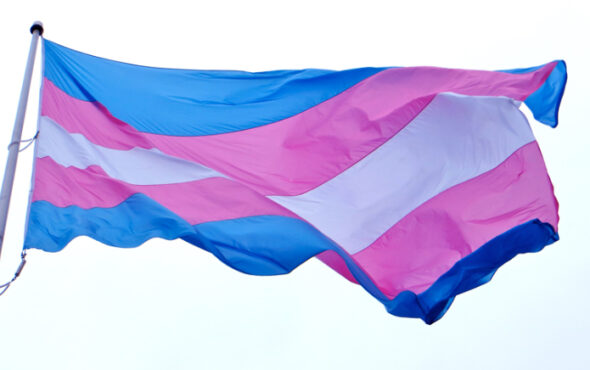
In February 2023, trans-led charity Gendered Intelligence launched Waiting List Warriors. Scheduled for two hours each month, the online support group offers a virtual community space for trans adults left languishing on gender identity clinic (GIC) waitlists, usually at least a few years long. The mental health impact of this clinical purgatory can’t be understated; there are well-documented examples of trans people dying by suicide in the interim. Just like trans healthcare, NHS’ mental health services remain similarly stretched and underfunded, leaving non-profits like Gendered Intelligence to step up and provide life-saving resources to trans people in need.
The problem is that they’re struggling, too — at the time of writing, Waiting List Warriors has a waitlist of its own.
“When we first launched Waiting List Warriors, we were anticipating maybe a handful of sign-ups,” recalls Cleo, Communications Officer at Gendered Intelligence. “For the first session alone, I think around 50 people showed up. I remember talking to my colleagues who were facilitating the group, and just thinking, ‘Oh my God, this is going to be huge.’”
“When we first launched Waiting List Warriors, we were anticipating maybe a handful of sign-ups. For the first session alone, I think around 50 people showed up."
There was early critique of the group, which ultimately helped to shape what the support sessions would look like in practice. Cleo recalls one social media comment in particular, from a user who wrote: “I don’t want to be a warrior, I just want to get healthcare.” This comment laid the foundations for Waiting List Warriors as a community advocacy group first and foremost, not just “another space where people are miserable about the state of gender identity services,” says Cleo.
Naturally, basic healthcare shouldn’t be a battle, it should be a right, yet statistics have long shown that trans communities are failed by their GPs, and often avoid seeking treatment due to fear of discrimination and poor treatment. Forums are filled with anecdotes from trans people on the hunt for trans-friendly GPs, and resources like the Gender Construction Kit are invaluable for those looking to navigate the exhausting world of gender-affirming healthcare, but it shouldn’t be this way — in an ideal world, the term “trans-friendly GP” shouldn’t need to exist. It should be the norm. It’s worth noting that this isn’t just a trans-specific issue, either; medical racism, ableism and fatphobia are all well-documented, with books like Dr. Rageshri Dhairyawan’s Unheard and Dr. Annabel Sowemimo’s Divided adding yet more evidence to the argument that marginalised groups have long been failed by their healthcare providers.
Although it’s open to over-18s on GIC waitlists across the country, Waiting List Warriors prioritises people either waiting for or receiving treatment at four specific clinics: Nottingham, East of England, The Laurels and Sheffield’s Porterbrook Gender Identity Clinic. This specificity has been key to the success of the group, Cleo explains. “The substance of these groups is about sharing skills, talking about what’s going on in your life, and learning something new. People have said it’s really helped with their isolation by letting them talk to people who are their age and in a similar place to them, but it’s also enabled them to speak to people who are further along on their healthcare journey, and to learn from their pearls of wisdom.”
Better still, Waiting List Warriors has fostered new communities and networks. “Fundamentally, that’s the work we want to be doing,” Cleo continues. “None of us in the LGBT sector are going to single-handedly fix the mental health crisis, or loneliness in older queer people, or any of the big issues facing our community. What we can do is plant the seeds for community action, for people to help each other.”
"Every organisation within the LGBT sector is trying to do a huge amount of work with very, very little. It’s a hard time for funding, and we’re dealing with the legacy of a government that has treated us with contempt."
None of this is new – Cleo points out that Gendered Intelligence is “standing on the shoulders of giants,” citing the decades-long advocacy of non-profits like Switchboard, Opening Doors, Mermaids, and more, as inspiration. Yet this work is under-resourced and under-funded – incidentally, Opening Doors ceased operations in February this year, due to insolvency. These are just two of the key reasons that Waiting List Warriors is currently over-subscribed. “This isn’t unique to Gendered Intelligence,” she explains. “Every organisation within the LGBT sector is trying to do a huge amount of work with very, very little. It’s a hard time for funding, and we’re dealing with the legacy of a government that has treated us with contempt. One of the things that’s come out of that is that we can’t do nearly as much as we’d like to, because the resources just aren’t there. Whatever we do, we’re used to doing it on a shoestring.”
The recent election of a Labour government should theoretically be good news for LGBTQ+ charities, but the early signs aren’t great; soon after being appointed as Health Secretary, Wes Streeting upheld and extended a ban on puberty blockers. There have been promising signs of adult trans healthcare reform, with a number of so-called “pilot clinics” being rolled out to address long waiting lists. These clinics usually have extremely specific requirements, but some have been deemed successful enough to be commissioned, like London’s TransPlus.
There are small pockets of hope — Cleo notes a sense of “quiet optimism” in the air — but there is still a dire need for more mental health support, especially within marginalised communities. “What I would really love to see is for these services to be embedded within NHS mental health services,” says Cleo, who calls for “more attention to the community needs of patients.”
Healthcare shouldn’t be a battle, but currently, it is. Groups like Waiting List Warriors can offer a lifeline to those feeling worn down by never-ending waiting lists, as well as a direct link to other trans people with experience of navigating these systems. They’re under-resourced and over-subscribed, but they can — and should — be replicated, because the impact of community support groups can’t be overestimated. “As it stands, the third sector — organisations like Gendered Intelligence — are going to need to keep pitching in,” concludes Cleo, “both to support our communities and to make institutions like the NHS aware that our communities really need that support. Ultimately, I do want to advocate for every trans person to feel empowered to go to their doctor and say: “this is the help that I need.”
This interview is taken from the August 2024 issue of GAY TIMES. Head to Apple News + for more exclusive features and interviews from the issue.



